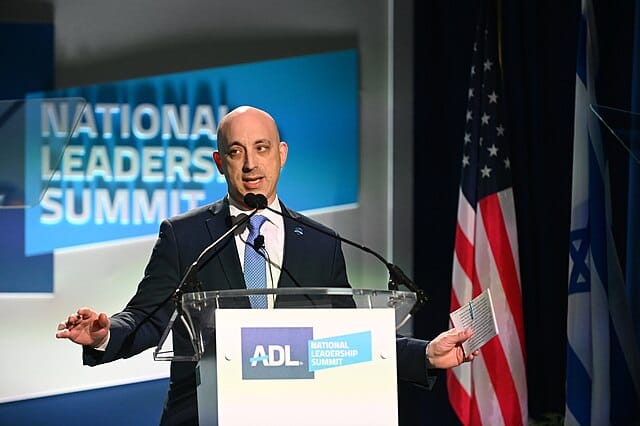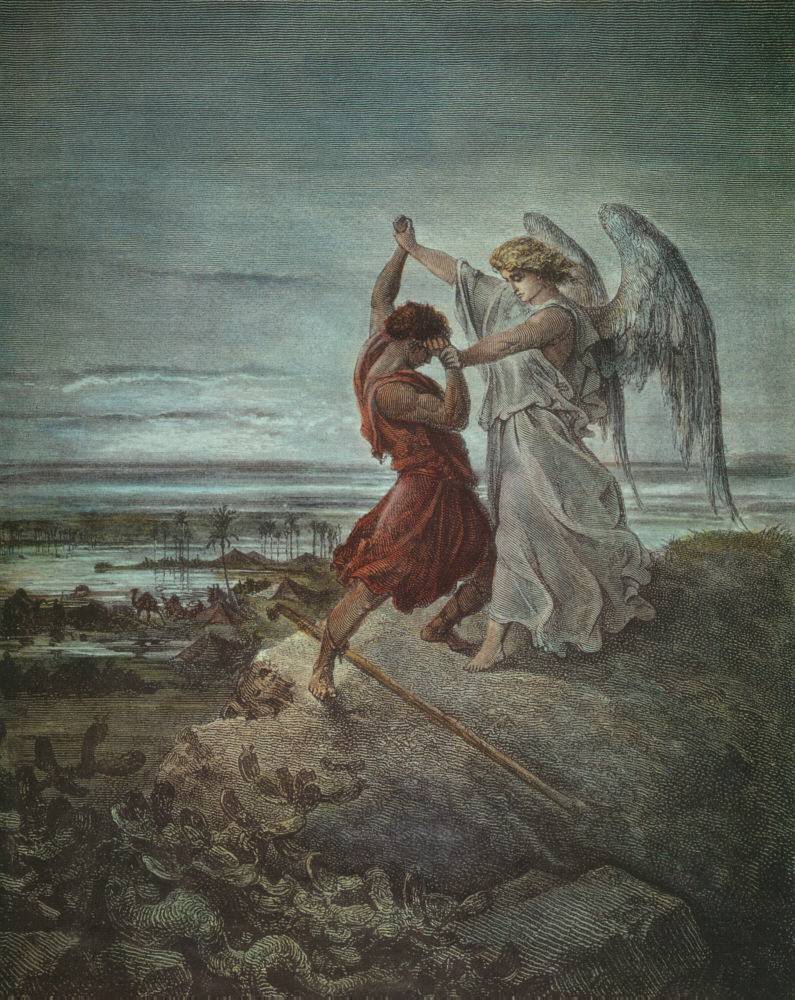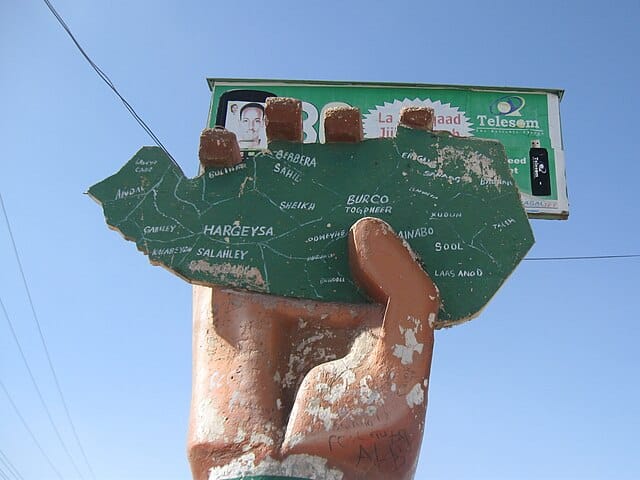The ADL is at the gates, courtesy of the Board of Deputies
A concerning partnership is developing between the ADL and the BoD.

Over the course of three days earlier this month, the Board of Deputies of British Jews (BoD) and the Anti-Defamation League (ADL) proved they are two sides of the same coin.
On 18 January, the Met Police arrested 77 protestors at the National March for Palestine in London, more than at any previous demonstration since 7 October 2023. For the first time, the police also targeted lead march organisers Ben Jamal of Palestine Solidarity Campaign and Chris Nineham of the Stop the War Coalition. A collection of 40 leading legal scholars described these actions as a “disproportionate, unwarranted and dangerous assault on the right to assembly,” and called for an inquiry into the Met’s abuse of police powers.
Subsequent reporting revealed an extended campaign by the BoD and other Jewish communal organisations to pressure the Met into changing the previously approved route of the march and to broadly intensify repressive measures toward protestors.
The following day, 19 January, Met Commissioner Mark Rowley appeared at a BoD event where he spoke positively about his force’s ability to overcome their limited legal powers to condition protests, stating that the Met has made unprecedented use of available restrictions to police the Palestine solidarity movement.
The BoD’s president, Phil Rosenberg, publicly celebrated their partnership after the weekend’s great success: “I think, working together, we have seen things improve on the specific issues that haven’t always gone right, particularly early on. I think the biggest example of that perhaps was yesterday.”
Across the Atlantic, on 20 January, tech billionaire Elon Musk twice made Nazi salutes towards the crowd during Donald Trump’s inauguration. These gestures were not out of character, but followed a months-long campaign of public support for far-right parties across the world, including the neo-fascist AfD in Germany.
The ADL – an organisation nominally committed “to stop the defamation of the Jewish people and to secure justice and fair treatment to all” – jumped to Musk’s defence, claiming in an official post that his repeated arm extensions were a mere “awkward gesture in a moment of enthusiasm.” The post concluded: “This is a new beginning. Let’s hope for healing and work toward unity in the months and years ahead.”
The ADL’s commitment to Israel advocacy over all else is now well-established. Yet this clumsy and brazenly transparent willingness to launder the reputation of the Trump administration and the American far-right seemed to mark yet another low.
The BoD and the ADL’s actions over those three days shared the same essential character: using their credentials within the Jewish community to give cover to deeply repressive forces threatening democratic norms, solely for the sake of advancing a pro-Israel agenda.
However, these parallels are not mere coincidence, nor are they simply resonances among broader ideological trends. The two organisations are quite literally formal partners, albeit on deeply asymmetric terms. And that partnership has potentially significant consequences for the UK.
Who are the Jewish people?
In October 2024, the two organisations announced the completion of Jewish Living Online (JLO), a jointly created digital course intended to accompany the UK’s standard school curriculum for KS3 and up.
Described in their press releases as “a groundbreaking initiative to address the lack of adequate education about Jews, Judaism, and antisemitism in UK schools,” the platform shares ADL and BoD branding and educational resources. Though there is not yet recorded use of the resource in schools, the Board is actively lobbying Education Secretary Bridget Phillipson to take up its cause as an antidote to a perceived antisemitism crisis in the country.
The course, through offering its own potted histories of Jewish Life in Britain, Israel and Antisemitism, is an exercise in ideology, one which offers the BoD and ADL an opportunity to finely distil their shared worldview of Jewish exceptionalism and supremacy. Unsurprisingly, JLO contains nearly every single hasbara talking point one can imagine and systematically excludes alternatives to this right-wing orthodoxy.
This begins in the course introduction. The question of “who are the Jewish people?” is answered by conflating ancient and modern history so as to frame the relationship of Jews to Israel as a form of indigenous anti-colonialism: “At various points in history, Jews were forcibly thrown out of the land of Israel by ruling empires, but there was always a majority who wanted to return”(emphasis theirs).
While the ideological content most clearly bubbles to the surface in the later sections on antisemitism and Israel, the course manages to infuse nearly its entire offering with this outlook. This ranges from the complementary comparison of English nationalism and Zionism via the parallel of the red poppy and the “Blood of the Maccabees” wildflower when discussing holidays, to a comprehension check which simply (and profoundly) asks “What is the Jewish Chronicle?”.
One of the most striking moments of bald-faced dishonesty comes in the course’s account of the rise of fascism in Britain in the 1930s. The text presents the BoD’s Defence Committee as the primary vehicle for opposing Oswald Mosley, while omitting any mention of the Battle of Cable Street, when the Board advised Jews to stay home. As such, broader solidarity between Jews and non-Jews, as well and the numerous independent anti-fascist actions, are erased from the historical record.
As the units finally arrive at antisemitism, the content becomes increasingly agitated, as if the rest of the course was merely a prelude to this moral crescendo.
Inexplicably, a subsection titled “Blood Libel–Made in England”, describing the mainly medieval history of this antisemitic trope manages to conclude with the warning that modern antisemitism can recycle old tropes, as seen in “fanatical anti-Israel rhetoric”.
A later section on “Antisemitism Today” focuses on 7 October and its aftermath. The text recycles the debunked claim of murdered babies and frames Israel’s genocidal assault on Gaza as a war “to prevent any further terror attacks and get the hostages back”. It then laments the subsequent mass protests as targeting “the existence of the world’s only (tiny) Jewish state.”
When it directly describes that tiny Jewish state, the course offers a pop-up explainer that defines Judea as the biblical and modern name for much of the land of Israel and the West Bank, parroting the terminology used by religious Zionist settlers. It also digs deep into the hasbara reserve to note that Israel has made the desert bloom and is the only democracy in the Middle East, where even non-Jewish citizens have equal rights and can serve in the military.
These units rely heavily on ADL video content to supplement the text. To explain the different kinds of antisemitism, each page embeds a different video from the ADL’s “Antisemitism Uncovered” series, which explicitly describes anti-Zionism as among the most common antisemitic myths, equivalent to the blood libel, deicide, and greed.
There is of course much, much more. Taken as a whole, JLO is a deeply depressing, hollowed-out vision of Jewish life that signals the last gasps of an effort to counter a completely discredited ideology a year and a half into televised genocide. Yet this is now the main purpose of the BoD and ADL, and the risk remains that it will find backers among individual teachers and even government officials.
A special relationship
This is not the ADL’s first incursion into British life and will not be its last. For decades, it has viewed the UK as a site of influence and a well of financial support through its openness to oligarchy. The BoD always proves to be a committed partner in the ADL’s imperial expansion.
In 1978, for example, the ADL attempted to export its expertise in resisting economic boycotts of Israel to the UK. To do so it drew on its experience successfully lobbying the US government to enact a provision in its 1977 export bill that penalised any participating American firm.
The ADL assisted the BoD and the Anglo-Israel Chamber of Commerce in pressuring the UK government to adopt similar measures. At the insistence of British Jewish leaders, then ADL chairman Burton M. Joseph served as the first witness to speak in support of anti-boycott draft legislation at the House of Lords.
This relationship threatens to only get stronger in the years ahead, benefitting from a new formal partnership to fight a global forever war on antisemitism. In July 2023, the ADL convened a global task force dubbed the “J-7”, comprising Jewish organisations from the UK, France, Germany, Canada, Argentina, and Australia. The BoD, unsurprisingly, is the UK’s representative, and accompanies the ADL on lobbying and strategy trips around the world.
While the so-called US-UK special relationship continues its decline in the age of Trump, the parallel bond between the ADL and the BoD is immune from this trend. It’s time for the British left to take note of US activism and make its own call to drop the ADL, while British Jews must continue at every opportunity to discredit the BoD’s claim to be the voice of this community.▼
Evan Robins is an editor at Vashti.
There’s no corporation or big advertisers behind Vashti – we're a workers' cooperative and rely on small donations to keep running. Support our journalism to help break the consensus.
To donate once or monthly, click here.
Author

Evan Robins is an editor at Vashti.
Sign up for The Pickle and New, From Vashti.
Stay up to date with Vashti.



